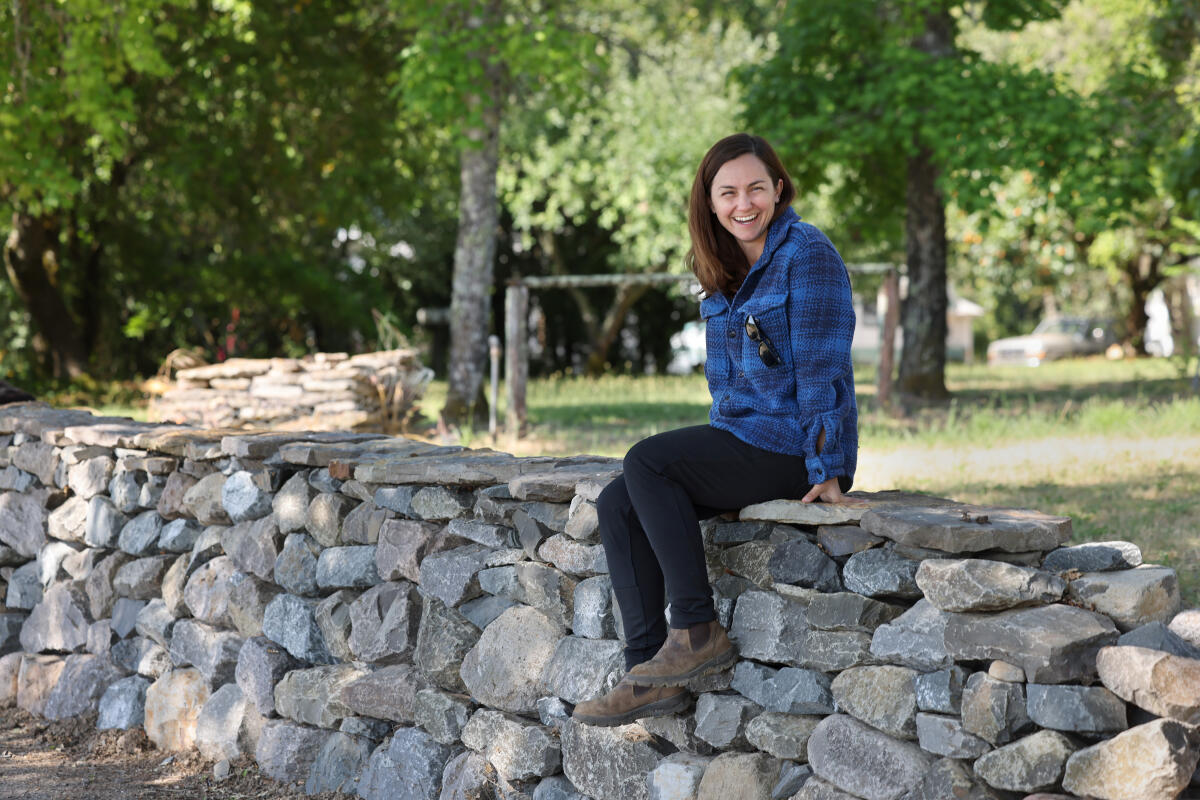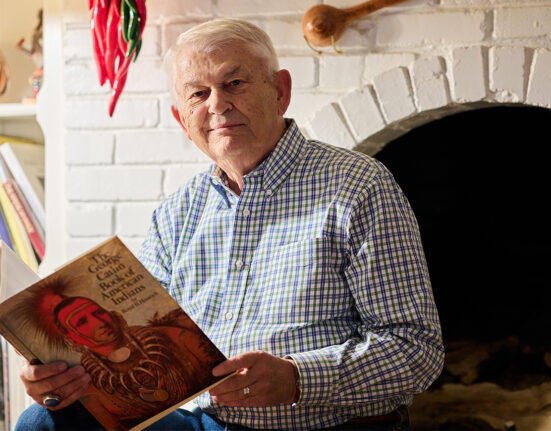In Europe they’re a quaintly indelible part of the landscape. In the U.K alone, an estimated 74,000 miles of stone walls, built without mortar or rebar, are etched through the landscape.
Forestville landscape designer Christa Moné first became aware of these ancient and ubiquitous structures when she was living and working in France.
“I helped do a few repairs on walls when I was living there,” she said. “But I didn’t think much of it. They were just a part of the environment I was working in.”
It wasn’t until she got back to the United States and started working on the East Coast, where a lot of old stone walls can also be found, that she really became captivated by their natural beauty, practicality and sustainability.
“I just sort of fell in love with the look of them and how they’re built. I feel a strong connection to stone and it has always been a part of the landscapes I really love,” she said.
Moné, who went to the south of France to study the art of gardening, started out in estate management, overseeing luxury properties with extraordinary landscapes.
Since 2009, she has dedicated herself to creating high-end landscape and exterior design. Her particular passions include reviving the tradition of dry stone walling.
After establishing her own design practice in Sonoma County, Moné took note of how many old stone walls nestle so neatly into the rural landscapes of Wine Country, and how commonly they can still be found, particularly in places like the Napa and Sonoma valleys.
But not all stone walls are created equal. Some are made with mortar and others, while stacked “dry,” don’t necessarily employ the mathematics and engineering of the dry stone walls that crisscross the countryside in Europe.
Moné said she couldn’t find anyone locally who could teach her. So two years, ago she found herself in Santa Fe, New Mexico, taking a workshop with a master of the art, Sean Adcock.
She later recruited the Welsh dry stone wall-maker, to help her build a wall that might serve as a demonstration for clients and other landscape professionals who, like her, want to learn the how to do it.
Now the wall, similar to those built in the old days as livestock fences, sits overlooking a vineyard, as if it had been there for generations. It attracts wildlife like small lizards who love warm stone and birds looking for grub. Her cats love to leap and lounge upon it.
“A peacock moved in and spends all his day sitting on top of the wall and calling across the valley,” Moné said as the bird once again approached its perch on a recent June morning, screeching and making its presence known. “Before this was here it didn’t come over here. It’s really incredible the habitat they (dry stone walls) offer. They create these little microclimates. The walls are heat sinks.”
Stone walls also act as fire breaks, which is so important to the wildfire prone North Coast, she said.
With few expert dry stone wallers in Northern California — the closest certified builder may be Nelson Atkinson in Grass Valley — Moné would like to see more local landscape workers trained in the art as taught by The Stone Trust. The Vermont-based nonprofit, founded by four builders who went to England to learn from the masters, aims to preserve and advance the craft of dry stone building in the U.S. through education, workshops and certification.
While there are still many stone walls, old and newer, in Sonoma and Napa counties, they aren’t necessarily built using the same traditional engineering techniques practiced by the The Stone Trust. Masters aren’t just stacking stones, Moné said. They’re doing it using very particular set of techniques that will give the wall the durability to withstand time and weather.
Hoping to foster the art in the Wine Country, Moné has arranged, with the Trust, to co-host a five-day workshop in Forestville July 29 to Aug. 2 to teach the basics needed to begin building.
“California — From the Ground Up: an introduction to Dry Stone Walling,” will be a little different from their typical hands-on classes, said Stone Trust Executive Director Amy-Louise Pfeffer. Usually people are taught by disassembling an existing wall begun by Adcock and Moné.
“It’s a double-faced wall, so it has two external faces that are joined in the middle and they are thoroughly packed with stone and built to withstand the forces of friction and gravity,” Pfeffer said.
The process can be used to make a variety of stone structures from steps and retaining walls to patios.
Moné is using rip-rap strength stone from a quarry right down the road, adding to its environmental sustainability as a building product.







